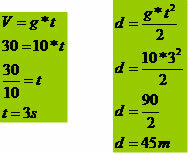Car manufacturers seek an agreement with the Federal Government to offer benefits to reactivate the sale of popular cars in Brazil. Thus, Minister Geraldo Alckmin, of Development, and Fernando Haddad, of Finance, are debating possible government incentives to make popular cars cheaper.
cheapest popular cars
see more
How to get your CNH for free in 2023?
After hacker attacks, Microsoft releases free tools for…
All this movement is aimed at creating a Federal Government program that reduces the value of popular cars by at least ten thousand reais. As a result, brand new cars are found with offers starting at around R$50,000 and R$60,000.
It is worth remembering that the cheapest model found is currently sold at R$ 68.1 thousand.
This is Renault's Kwid, and one of the justifications for the increase in values of zero km cars is due to the lack of parts caused by the pandemic.
Compensation
In order to reach the objective of reducing the price of automobiles, automakers need the government to increase a reduction in the tax burden for the so-called entry cars, which refer to the basic models of automobiles.
On the other hand, car manufacturers would return with the production of “green” cars, that is, that would use only ethanol as fuel.
In this way, there would be less harmful impacts on the environment than conventional cars that use combustion burning, such as those that use gasoline or diesel.
In summary, last year around 83.3% of new cars in Brazil had flex fuel technology, which allows the use of both gasoline and ethanol.
In the same period, also, the second most used fuel was diesel, with the contribution of 11.7%, followed by engines that use only gasoline, with 2.5%.
Automakers are also evaluating the possibility of removing some non-mandatory components from automobiles in a attempt to lower their final price, among these items would be those related to navigation and connectivity of the vehicle.
limited effect
The decision has been evaluated and many executives claim that the issue is important for the sector, which suffers from the drop in sales. However, manufacturers admit that reducing the price of entry-level vehicles may have limited effect.
Considering the high interest rates and the difficulty in offering credit, the acquisition of vehicles ends up not being facilitated. In 2022, for example, the percentage of new cars sold with financing was below 40%, ten years ago, this number reached 70%.

